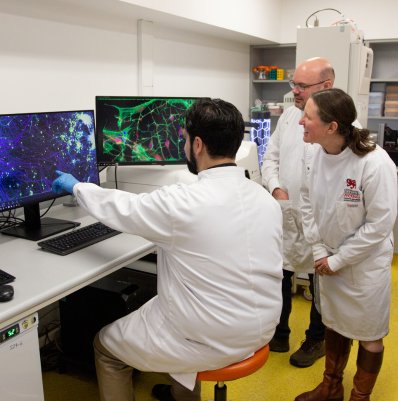Despite the first description of motor neurone disease (MND) over 150 years ago, it remains a terminal diagnosis with no effective treatment or cure.
While advances in research over the last 25 years have been remarkable, there continues to be no effective therapies to slow or halt the progression of MND.
Research takes time and is expensive – but it’s the best way to fight back against the Beast.



